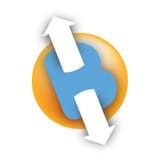Wireless Consumer Usage Notification Guidelines Agreed to by Industry and Consumer Groups
WASHINGTON Monday October 17, 2011 – FCC Chairman Julius Genachowski, CTIA The Wireless Association’s President and CEO Steve Largent and Consumers Union’s Policy Counsel Parul Desai held a press conference at Brookings Institute yesterday morning to announce new “Wireless Consumer Usage Notificati
WASHINGTON Monday October 17, 2011 – FCC Chairman Julius Genachowski, CTIA The Wireless Association’s President and CEO Steve Largent and Consumers Union’s Policy Counsel Parul Desai held a press conference at Brookings Institute yesterday morning to announce new “Wireless Consumer Usage Notification Guidelines.”
Building upon their Consumer Empowerment Agenda, the FCC has been working with the wireless industry and public interest groups to protect consumers from sudden and unexpected charges on their monthly wireless bills otherwise known as “Bill Shock.”
“Bill Shock is a real consumer problem that needs to be fixed, and there are ways to do this easily and inexpensively, using technology that is widely available,” stated the Chairman.
The FCC has proposed three steps that wireless companies should take. These steps are:
- Send voice or text alerts to notify consumers when they approach and when they reach monthly plan limits for voice, data, and text that would result in overage charges.
- Send alerts when consumers are about to incur international roaming charges that are not covered by their monthly plans; and
- Clearly disclose any tools that mobile providers offer to let consumers set their own usage limits and monitor their usage balances.
Largent explained that the CTIA will update its “Consumer Code of Wireless Conduct” to include a provision that will require carriers to provide free alerts to consumers, before and after they reach monthly limits on voice text and data. CTIA additionally will plan to include notifications to inform consumers of international roaming charges when traveling abroad.
Largent added that he is pressing for two of these free alerts to be made available to all consumers by October 2012, with the remaining notification to be enacted by April 2013.
“We’re encouraged that the industry is offering to provide free alerts to help customers avoid ‘bill shock,’ and we urge them to do it as quickly as possible,” noted Desai from Consumers Union. “Some companies are already providing free alerts, while others are charging extra fees for them, and we think it’s possible – and consumers deserve – to immediately receive free alerts to avoid overage charges.”
In order to ensure compliance the Chairman explained “Consumers Union and the FCC will work together to launch a new web portal on the FCC website that will allow consumers and anyone to see what types of alerts are provided by each CTIA member. This portal will allow the FCC and the public to track whether carriers have complied with their obligations. This public portal will also provide a public incentive for carriers to move quickly with implementation.”
Genachowski also noted that since the wireless industry is taking the current steps to reduce “Bill Shock”, the FCC will be placing it’s Rulemaking on hold in order to monitor compliance efforts.
The guidelines put forth by Consumers Union, CTIA and the FCC are essential for protecting consumers and driving adoption of wireless broadband countrywide.








